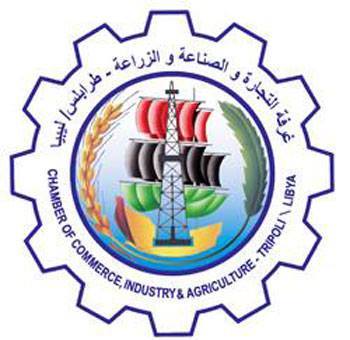By Michel Cousins.
Tripoli, 19 May:
The LibyaBuild exhibition which opens at Tripoli International Fair ground tomorrow and lasts till 24May looks set . . .[restrict]to be the biggest such event in years. Some 632 companies are taking part. Of them, 427 are foreign — from 26 countries.
All 35 pavilions at the fairground are going to be used. Indeed, temporary ones have also had to be erected for massed ranks of Turkish companies. Altogether there will be over 17,000 square metres of exhibits. Over 15,000 visitors are expected.
It is a massive turnout and represents the enormous international interest in the new Libyan market.
Of the foreign participants focusing on construction equipment, contracting, temporary housing units, ceramics and the like, the largest single group are Italian — 130, taking up over 20 percent of the site. Turkish companies come next with 95, French and Egyptian are at around 40 each. There are 24 from Tunisia, 20 from Malta and ten from the UAE.
There are also 200 Libyans exhibitors. Some are local agents of foreign companies, others are wholly Libyan-based enterprises. Included is ODAC, the Organisation for Development of Administrative Centres which was the biggest development company in the country until the revolution, responsible for over two-thirds of government projects. For the moment, it remains so.
There are some notable, indeed bizarre absences. There is not a single British company and only one or two from the US. “It is shocking,” said one Tripoli-based Briton but who works for a non-British company. “It sends a message that the UK is not interested in Libya. It’s not true but that is the image conveyed.”
There are not many Chinese exhibitors either. China booked and paid for space but then the Chinese government advised exhibitors not to turn up. However, 17 Chinese companies have applied to attend as observers. They clearly want to see how things are moving in the new Libya.
The organisers, ATEX, have been running the show for several years. This is in fact the eighth Libya Build they have organized.
Others, however, are now keen to jump on the exhibition bandwagon, despite their lack of experience. Exhibitions and conferences appear to have become an industry of their own in the new Libya — one that is growing as local businessmen imagine rich pickings from foreign companies keen to sell products and services to the country. New exhibitions are being announced all the time by businessmen completely unaware of the serious work that goes into them behind the scenes.
Some have already been a disaster, due to lack of professionalism by those organizing them. In one case in February, there was virtually no attempt to bring Libyan officials and businessman to the exhibition, to the fury of the foreign exhibitors. Others being dreamed up by those with similar inexperience show signs of being disasters about to happen.
That is not the case with ATEX. Not only have they seven year’s experience behind them, Libya Build is the only show they have concentrated on, although they are now looking to widen their horizons.
Exhibitors, non-Libyan as well as Libyan, see tomorrow’s exhibition as very much a new departure — a new fair catering to the new needs of the new Libya.
ATEX Managing Director Maged Mahfoud and Sales and Marketing Director Ghaleb Gheblawi see it very much that way too. They are in bullish mood about both the exhibition and the direction the Libyan economy is taking. Their optimism is almost infectious.
Mahfoud points out that, after years when it was the government that decided almost everything connected to development and construction, the show is no longer oriented at the public sector. “The focus is now on the private sector,” he said, pointing to increasing activity and influence of the chambers of commerce across the country and the Libyan Businessmen’s Council. “That’s the growing sector.”
Asked if exhibitors had been reluctant to participate until the country was perceived as more stable or until after the June elections when there would be a government that would have the legitimacy to make major development decisions, both he and Gheblawi were unconcerned.
“Everyone is asking when the projects will restart,” agreed Giblawi. “But there are 427 foreign companies eager to work in Libya, who are not afraid of rumoured dangers,” he noted. “Of the exhibitors at the fair, 65 percent of them are foreigners.” That, he stressed, “is a strong political message” about the new Libya.
The exhibitors did not expect to be handed contacts during the fair, both men pointed out. It was about networking and making contacts, they said — and now was the time to make them.
As for the stories about dangers, they were exaggerated. “No one needs to be scared about coming to Tripoli to do business,” Ghiblawi said. The presence of so many foreign businessmen at the fair was proof of that.
The Libyan economy is in good spirit and is going to grow, he predicted.
“We are healthy, we are back and we are strong.”
[/restrict]






